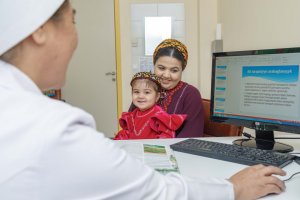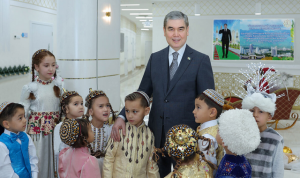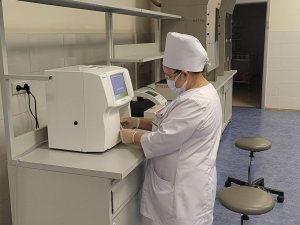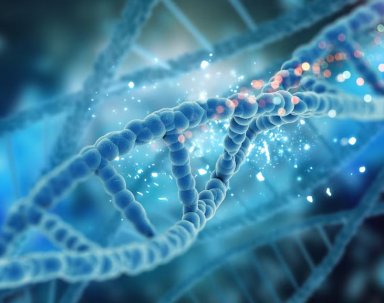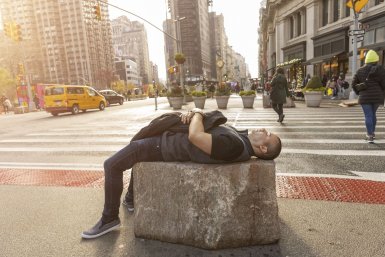This Wednesday, WHO representatives Dr. Mike Ryan and Dr. Maria van Kerkhove answered numerous questions from social media users live on several social media platforms.
This is reported by the UN press center, giving an example of several recorded questions and answers to them. We offer them to your attention.
How to stop the pandemic?
Where people are United, where the government clearly understands what needs to be done and takes all the necessary measures, COVID - 19 can be managed.
"Everyone is very tired, everyone is just exhausted, everyone wants to return to normal life – and we, by the way, too," said Mike Ryan. - Unfortunately, in a crisis, the virus dictates how we live. But we must control our own future, and this can only be done if we defeat the virus."
Maria van Kerkhove adds that everyone has a role to play, and this does not require anything complicated: you need to wash your hands often and carefully, observe the so – called "respiratory etiquette", that is, sneeze and cough behind the bend of the elbow, keep a physical distance, if necessary - for example, in closed rooms or where it is not possible to keep a distance-wear a mask, when quarantining do not leave the house, if symptoms appear, contact a doctor or call a "hotline".
"Last but probably most important, keep an eye on the information," added Dr. van Kerkhove. - It is especially important to know exactly where the virus is circulating. The situation is developing, it is constantly changing, so we need to monitor new data, get fresh information – then we can make the right decisions, and we have to make them every day – and protect ourselves and not infect our loved ones»
How safe is it to open schools?
"The school is a microcosm of our society and members of that same society are there," Dr. Ryan said. "If the virus is spreading in society as a whole, it will spread in schools as well." Fortunately, children very rarely carry COVID-19 in severe form, and sometimes do not have pronounced symptoms. But it is also dangerous – without knowing it, they can infect others-those who are less resistant to the coronavirus, or bring it home and infect loved ones. By the way, this has already happened – for example, in the case of polio, when children infected with the virus, but without symptoms, infected others with weak immunity, and this caused them to paralysis.
"We must do everything possible to ensure that children can return to school, and to do this, we need to stop the transmission of the virus," says Mike Ryan.
As you know, recently, especially where restrictions have been lifted, the number of cases of COVID-19 infection has increased among young people, WHO often consider themselves invulnerable and are not very ready to give up their usual lifestyle.
The participants of the conversation called on young people to abandon the image of sacrifice and take a leading role in the fight against the pandemic: "This is your future, this is your planet, you live in this society, and you decide what it will be, what your life will be."
Why wear masks? This is so inconvenient.
Yes, it is inconvenient. Everyone, including the WHO staff themselves, not to mention the doctors who wear the mask for 12 -16 hours. Maria van Kerkhove and Mike Ryan explain that masks are necessary in cases where there is a risk of infecting others: in closed rooms and even in the air, if it is impossible to observe a physical distance of at least 1-1.5 meters. They reminded us that many of the things that previously seemed strange and uncomfortable have entered our lives – for example, seat belts in cars, Smoking in public places, or children's car seats.
Both Maria van Kerkhove and Mike Ryan remind us of the unique ability of a person to adapt to any situation. Ryan explains that he takes the bus to work every day – wearing a mask, of course. And he has already developed a habit-as solid as a daily brushing of teeth:
"When I get on the bus, I know that I will take the handrails, touch different surfaces. So when I sit in the seat, before I pick up my phone or put on my headphones, I wipe my hands with antiseptic. This has become a habit, I do it automatically."
But there will be a vaccine soon, won't there?
Indeed, several serious candidates have already appeared, WHO representatives confirmed. The most promising results came from a trial of a vaccine developed in Oxford. But a number of others have already passed the first and second phase of trials, and as Michael Ryan explains, as a rule, a large number of candidates are eliminated during clinical trials, which has not yet happened in the case of a potential COVID-19 vaccine.
Tests of a number of existing drugs also give good results. But, emphasizes Ryan, we must soberly assess the situation. Everyone wants the vaccine to be available as soon as possible, but it is much more important that it be effective and safe. And there is no escape - it takes time.
In addition, existing vaccines that save the lives of millions of people do not provide a one-hundred-percent guarantee. In the case of the new vaccine, we do not yet know how effective it will be or how long it will be able to protect the body from infection. Dr. Ryan assured that the development of vaccines and drugs is proceeding at an unprecedented pace, but we cannot rely on them alone - while we need to do everything in our power to stop the virus. Mike Ryan quoted a chess player: "It's much easier to defeat an opponent if you can wear them down." "So we have to wear down the virus," he concluded.
Earlier, we wrote that WHO reports successful trials of the COVID-19 vaccine.

